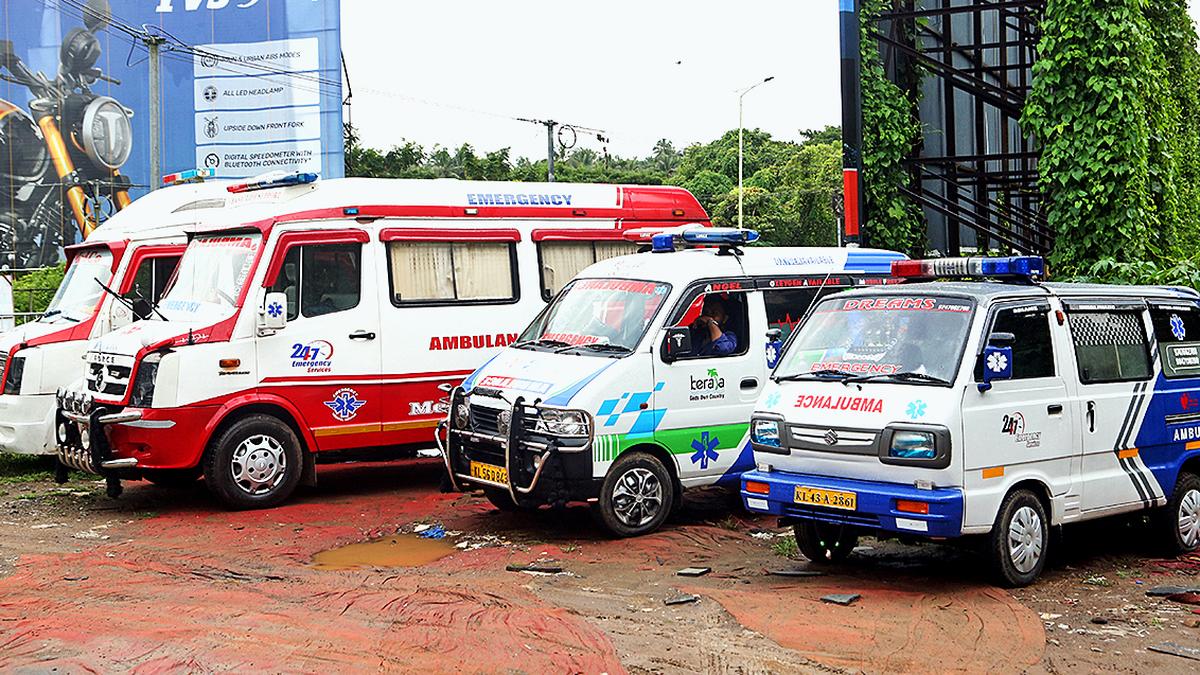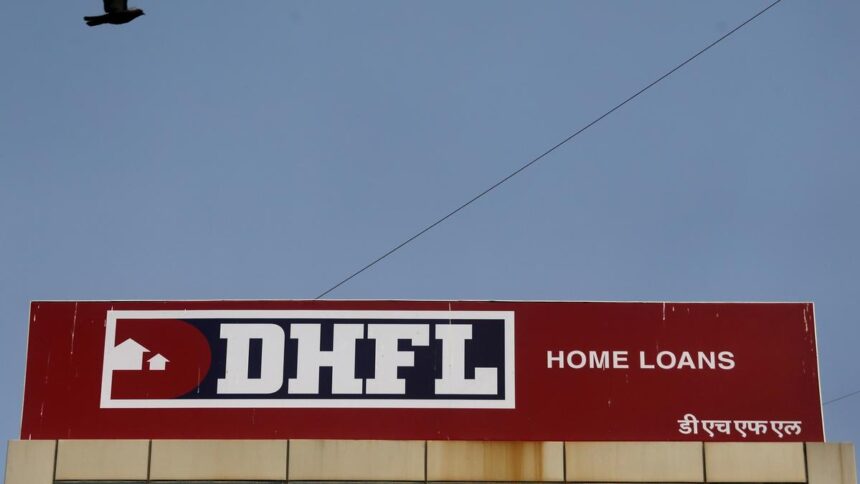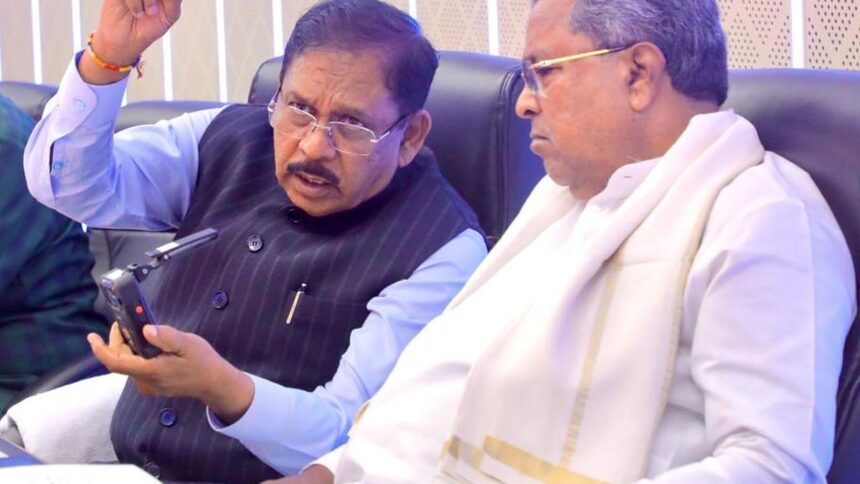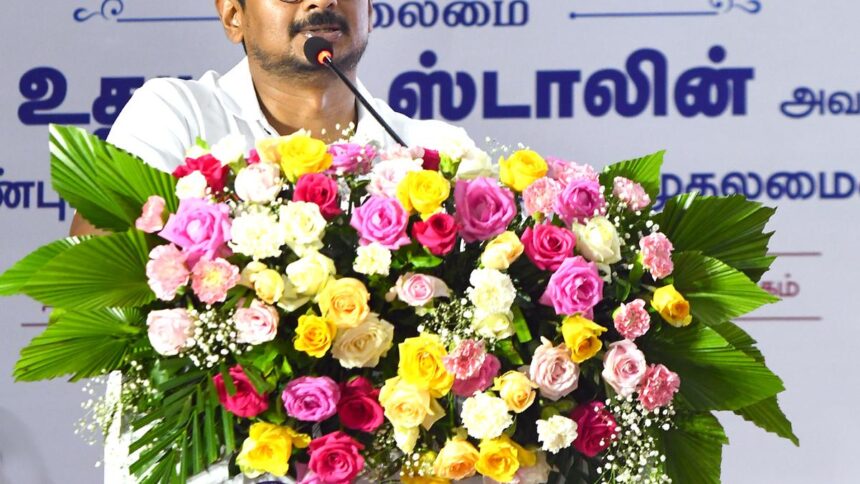
Officials said the overuse of revolving beacons and loud sirens, coupled with overspeeding, sudden braking, and abrupt manoeuvres, posed a heightened risk to road safety.
| Photo Credit: K Ragesh
The Kerala government will convene a meeting of private ambulance operators shortly to address issues concerning the sector, including risky driving, canvassing for private hospitals, and the use of sirens and lights during non-emergency situations.
At a top-level meeting on Tuesday, Chief Minister Pinarayi Vijayan said the government had received numerous complaints of private ambulances transporting accident victims to private hospitals, allegedly for commission, bypassing government facilities, misleadingly citing lack of care, and often without the consent of patients or their relatives.
The government noted that overcharging patients and families of accident victims was a major grievance, and directed the Motor Vehicle Department (MVD) to establish a standard fee for ambulance operations.
According to police, rash and negligent driving by private ambulances caused an estimated 150 accidents in 2024, resulting in serious injuries to other road users, particularly two-wheeler riders and pedestrians. State Crime Records Bureau (SCRB) data showed that at least 29 people died in accidents involving private ambulances in 2023.
Officials said the overuse of revolving beacons and loud sirens, coupled with overspeeding, sudden braking, and abrupt manoeuvres, posed a heightened risk to road safety.
Dr. Mathew Abraham, former head of neurosurgery at Sree Chitra Tirunal Institute for Medical Sciences and Technology (SCTIMST), said that only a minority of emergency calls required time-critical intervention, precluding the need for extreme speed and hazardous driving at all times.
An MVD official said a significant portion of the rural population depended on private ambulances, which often failed to comply with the ambulance code, lacking basic medical equipment such as defibrillators and medical oxygen. Outdated minivans, many no longer in production, make up the bulk of Kerala’s 5,000-odd private ambulances.
The Directorate of Health Services operates 476 ambulances (108 service), providing free-of-charge transport.
Officials also flagged instances of alcohol-impaired driving among ambulance operators, noting that real-time road checks were infrequent because of the ostensibly emergency nature of their missions.
Transport Commissioner C.H. Nagaraju told The Hindu that the MVD had made emergency response training mandatory for ambulance drivers. “Only certified drivers with an MVD endorsement stamped on their driving licences can henceforth operate ambulances,” he said.
Mr. Nagaraju added that the MVD had launched a drive to ensure compliance with the Ambulance Code, covering vehicle design, mechanical standards, medical equipment, life-saving devices, and the presence of paramedics on board. He also stressed that ambulance drivers should not be cited as witnesses in accident cases, nor be deployed for unrelated duties such as stretcher-bearing.
Published – September 03, 2025 12:30 pm IST





















